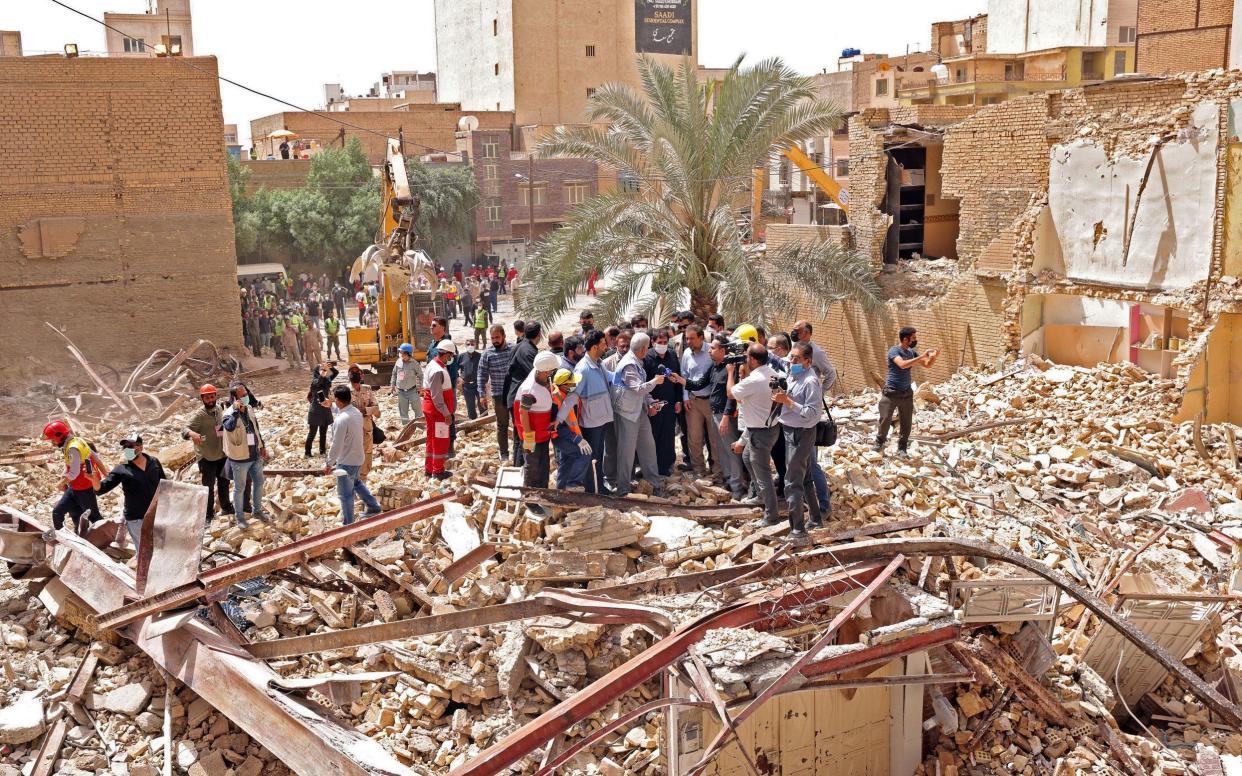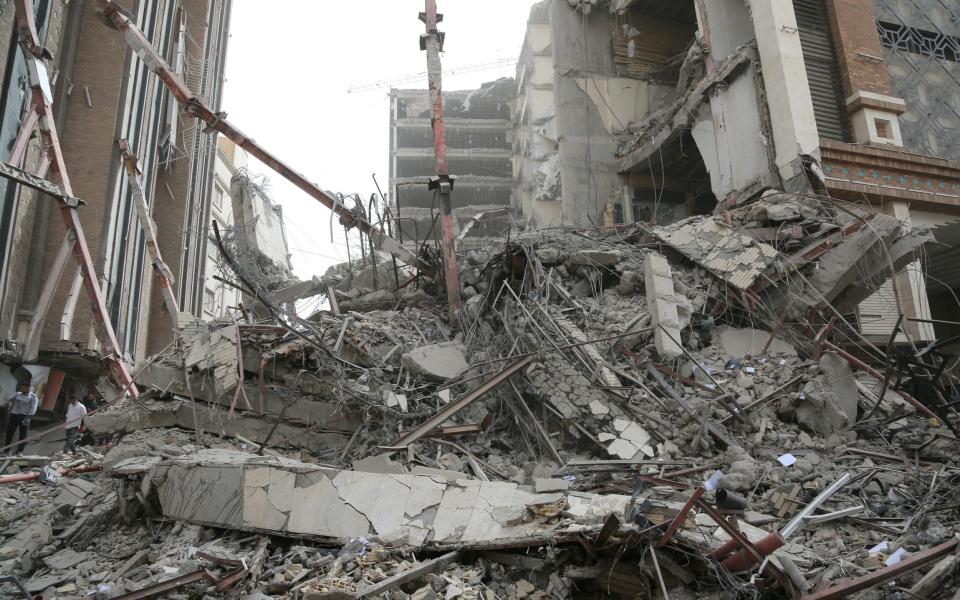Iran rocked by third night of violent protests over deadly building collapse

- Oops!Something went wrong.Please try again later.
Iran has been rocked by a third night of protests, amid claims that corruption close to the Revolutionary Guards was responsible for a deadly building collapse.
At least 28 people were killed when the unfinished Metropol building, in the oil city of Abadan, crashed to the ground on Monday, with dozens more still trapped under the rubble.
Locals say Hossein Abdulbaghi, the project's main investor, was able to get a construction licence through his links with the Islamic Revolutionary Guards Corps, which controls Iran’s shadow economy - despite not having met engineering regulations.
Mr Abdulbaghi's fate remains a mystery. Iranian authorities say he died in the collapse, but his body has not been recovered. Locals believe he has fled to Turkey with the help of authorities.
Iranian authorities have described the fall of the Metropol as a “crime”. It said 13 people involved in issuing the licence for the construction of the building have been arrested.

Thousands of angry people took to the streets in Abadan and nearby Ahwaz shouting "death to incompetent officials" and hailing the "martyrs of Metropol", said Iran's Fars news agency.
Ayatollah Ali Khamenei, Iran’s supreme leader, sent a personal message of condolence to the families of the victims and asked the country’s justice system to “punish those responsible for the tragedy to teach others a lesson”.
But according to documents obtained by the London-based Iran International TV, the nephew of a close aide to Ayatollah Khameini helped Mr Abdulbaghi secure the licence.
Moud Shamkhani - whose uncle, Ali Shamkhani, is a former commander of the Revolutionary Guards Corp and the secretary of Iran’s High Council of National Security - had recommended Mr Abdulbaghi to the local municipality and backed him to build the 10-storey block. Moud Shamkhani has not responded to the claim.
Mohammad Reza Kouchi - an MP and head of the Majles construction projects committee, which oversees and approves the construction of towers and malls across the country - told the state broadcaster that his committee had banned the municipality from giving Mr Abdulbaghi the licence, because he had not met all the required engineering regulations.
“There has certainly been an element of graft between the local municipality and the main investor to proceed with this project”, Mr Kouchi has said.

The protests - which police attempted to disperse on Friday with tear gas and warning shots - come on the back of widespread anti-government demonstrations in recent days, after a sharp rise in the price of many everyday items.
Earlier this month, the government of Ebrahim Raisi, the president of Iran, was forced to cut subsidies on imported wheat for millions of people as prices soared. It led to an overnight rise of more than 300 per cent in the cost of bread and other staples.
The move led to clashes between protesters and security forces in dozens of Iranian cities.
Criticism of the Revolutionary Guards' commercial activities - which include oil and gas exploration, road and dam construction, and tourism - has become a subject of public debate among Iranians, as the country's dire economic situation affects the lives of millions of ordinary people.
In February, an audio recording in which two former senior officials of the Revolutionary Guards discussed corruption that helps fund the powerful force and its secretive military operations abroad was leaked to the Persian service of Radio Free Europe.
In recent days, Iranians on social media have linked the corruption within the clerical regime with rising poverty levels among the population, with one describing the collapse of the Metropol building as “the symbol of a regime in free fall”.

